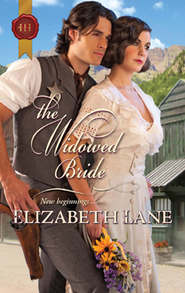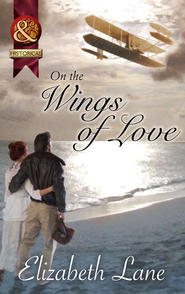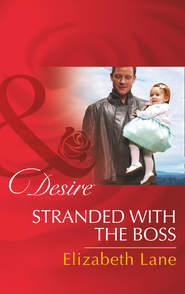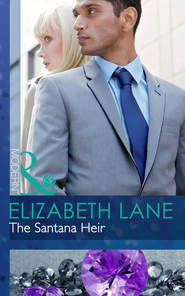По всем вопросам обращайтесь на: info@litportal.ru
(©) 2003-2025.
✖
Navajo Sunrise
Настройки чтения
Размер шрифта
Высота строк
Поля
“Blast it, I’m aware of the problem, but this is what they sent us! It’s all we could get!” Dodd looked up in relief as Ahkeah broke through the crowd of Navajos and made his way to the table. “Tell him, Ahkeah. Tell them all! I’ve sent scores of wires to the bureau! They promised us beans and corn, but, blast them all to hell, this is what they sent!”
Dodd was interrupted by an outburst from the man with the sack, who then turned his outpouring of anger on Ahkeah. Ahkeah listened calmly, then turned back toward the agent. “Are you aware that this flour is full of worms?” he asked.
Dodd swore under his breath. “It wouldn’t make any difference if I had been aware. There’s nothing I could have done. I’m sorry, Ahkeah, but your people will just have to clean the flour as best they can. Now tell your friend to take his family’s share and move on.”
Ahkeah did not move. “Do the soldiers at the fort have to pick the worms out of their flour?” he demanded. “Or do the bilagáana think themselves too fine to eat what they provide for us?”
Dodd looked pained. The Navajo who’d first complained turned around and began talking to others in the line. The soldiers behind the table shifted nervously, fingering their carbines.
Miranda felt her throat tighten in apprehension. Ahkeah, she knew, was using this incident to make a statement of pride. But pride would not feed eight thousand starving people. If the Navajos didn’t accept the flour, they would go hungry. Was that what Ahkeah wanted? To trigger an incident for the benefit of that sleazy reporter—an incident that would call public attention to the plight of his people? Or was he merely a troublemaker, a reckless firebrand with more pride than common sense?
“You, Major.” He wheeled suddenly to face Miranda’s father. “You have a daughter. So do I. How can you ask me to feed my daughter what you would not feed your own?”
The silence that followed was broken only by the raucous call of a passing crow. Miranda saw Iron Bill’s neck and ears redden, a sure sign of rising impatience.
“I asked you a question, Major.” Ahkeah’s voice was as flat and as cold as the blade of a knife. “I’ve met your daughter, and I know her to be a fine and proper lady. Would you expect her to eat bread made from this flour?”
Miranda could sense her father’s anger welling. She could see it in the bristling eyebrows and in the clenched fist that rested on the table. She could feel her own tension building as she waited for the explosion…
The explosion that would be exactly what Ahkeah wanted.
“Why don’t you ask me that question?” The words burst out as Miranda rose to her feet. All eyes were suddenly on her—Ahkeah’s eyes, coldly challenging; her father’s eyes, startled and outraged; the reporter’s eyes, narrowing as he flipped to a fresh page in his notebook.
“Miss Howell?” Ahkeah’s voice dripped ice.
“Ask me your question,” she said. “I can answer for myself.”
“As you like.” His contemptuous gaze measured her, testing her mettle. “Would you eat this?” He filled a scoop from the open flour barrel and thrust it under her nose. Miranda fought the urge to recoil as the surface of the flour stirred slightly and a small, tan insect fluttered upward, past her face.
“If I were starving and there was nothing else, yes, I would eat this flour!” Miranda declared. “And if I had hungry children, yes, I would give it to them! I would give them anything to keep them alive!”
“Very passionately spoken.” Ahkeah glanced at the circle of listeners, playing to them with the skill of a politician. “But you aren’t starving, are you, Miss Howell? I saw you come directly here from the mess hall. Is this what you had for breakfast?”
“No.” Miranda remembered the gluey, tasteless oatmeal. Ahkeah, she knew, was intent on using her. He would take advantage of her natural squeamishness to make fools of Agent Dodd, her father and the U.S. Government. There was just one way to stop him—a way that lay before her now in a scoopful of weevil-infested flour.
Swallowing hard, she forced herself to meet his cold eyes. “If I show you that I’m not too proud to eat this flour, will that satisfy you, Ahkeah? Will you then be still and allow your people to get their rations without shame?”
A spark flickered in the depths of Ahkeah’s obsidian eyes, but his face remained as impassive as granite. “You, a bilagáana, would dare such a thing?”
Without answering him she turned to one of the soldiers. “Take a cup of this flour to the kitchen and ask the cook to make one flapjack—”
“No,” Ahkeah interrupted sharply. “We will do the cooking right here, where all the people can see.” Turning to the openmouthed private, he ordered firewood, an iron skillet, salt, baking powder, a spoon and a measure of lard. Spurred by the authority in his voice, the young soldier scurried to do his bidding.
Miranda glanced toward her father. Iron Bill’s rigid face was flushed like an overheated stove. His lips were pressed tightly together as if to hold back an outburst of ill-timed rage. He would not be so foolish as to speak out, nor would Agent Dodd, who was staring at Miranda as if she’d just sprouted wings and a tail. The news reporter was waiting, pencil poised to scribble down every reckless word, giving Ahkeah just the ammunition he needed for his publicized incident—an incident that would cause a whole nation of men, women and children to go hungry for the sake of pride.
By the time the ingredients and utensils arrived from the kitchen, Ahkeah had started a small, crackling fire in a shallow pit. Miranda watched in grim silence as he measured the flour, salt and baking powder into the bowl. She had hoped he would take time to sift the weevils out of the flour, but she should have known better. He would not make this easy for her.
Glancing up, he added a splash of water and a scoop of lard and began to knead the fist-size mass with his fingers. “This is how we make our bread,” he said. “With no yeast and no ovens. If the flour is fresh it isn’t so bad. But with this…”
Letting the words trail off, he dropped the rest of the lard into the skillet. As it melted, he made a flat circle of the dough, as broad as his hand was long, and dropped it into the sizzling fat.
“Don’t worry about the worms, Miss Howell,” he said, “the heat will kill anything living in that flour. Besides, you look as if you could use a little meat in your diet.”
The flat bread browned swiftly. Ahkeah turned it with his knife, then used the point to lift it free and hold it in the cool air for a moment.
“Here you are.” He thrust the bread toward Miranda with a mocking flourish.
Miranda accepted it gingerly between her fingertips. The fried bread was hot, but not hot enough to burn. She forced her eyes to blur so she would not have to look at it too closely. It would not be so bad, she reassured herself. She had surely done more distasteful things than this in her lifetime. And if she felt anything crunch between her teeth she would simply pretend it was a nut or a raisin.
Struggling to appear nonchalant, she sank her teeth into the warm, crisp dough. Every eye was on her as she moved her jaws in a semblance of chewing, then swallowed the small wad of dough in a single gulp.
“All of it,” Ahkeah growled, close to her ear. “You’re to eat every last crumb.”
Miranda tore off another small bite, meeting his gaze as she forced herself to swallow. His eyes held hers so intently that she could see her own reflection in the depths of his jet-black pupils. She could understand now why her father hated this man and why the soldier had been on the verge of shooting him last night.
Now he was waiting for her to slip—to gag, to choke or to fling the bread to the ground in disgust. But no, she would not let him win. Pride was one thing. Letting children go hungry was quite another.
Bit by bit she finished the bread, swallowing each piece as an act of sheer will. She avoided biting down or even touching the dough with her tongue. If she were to find a weevil in her mouth, her hard-won control would be lost. Ahkeah watched her every move, his eyes smoldering, his mouth twisted in a thin, humorless smile.
A gasp of relief broke over the assembly as the last bit of bread disappeared into her mouth. Miranda forced it down her convulsing throat. Done.
Flashing Ahkeah a defiant look, she glanced around frantically for water. It was Ahkeah himself who passed her a canteen. “Right from the Pecos River,” he murmured. “Just like the water we drink. Well done, Miss Howell. You’ve proved your point.”
He jerked his head in an affirming nod, and the Navajos at the front of the line spread out along the stations at the table, sacks open to receive their ration of tainted flour. Miranda gulped the brackish water, her stomach churning as people milled around her. Had she done the right thing, or should she have allowed a stubborn man his pride? Never mind, what was done was done. And suddenly she wanted nothing more than to get as far as she could from this miserable place.
“Miss Howell?” The reporter shouldered his way into her path as she turned to leave. His eyes were a watery blue, and a splintered hickory toothpick jutted from between his thin lips. “My name is Hyrum Blount, Miss Howell. Your quick action prevented an incident that could have turned very ugly. What do you have to say to readers of the Denver Post?”
Bile rose in Miranda’s throat as she turned on him. “Are you disappointed, Mr. Blount?” she flared. “Would you rather have seen a hunger strike, or better yet, a bloodbath? Would that have made a more sensational story to wire home to your paper?”
The reporter’s startled face blurred in Miranda’s vision as she felt the greasy bread and alkaline water welling up into her throat.
“Miss Howell, are you all right?”
Shoving the man aside, she stumbled around the end of the table and bolted for the back side of the issue house.
A ghost of a smile teased Ahkeah’s lips as he watched her go. It did not surprise him that Miranda Howell was sick. But his amazement at her boldness and tenacity warmed to a grudging admiration. For a bilagáana, the woman had courage.
Would he have pushed a confrontation over the flour if she had not come forward? He shrugged—a white man’s gesture that he had never quite managed to lose. His people had eaten far worse than infested flour in their four years at the fort. Perhaps it was just as well that nothing more had happened. At least their bellies would not be empty this week.
He stood at the corner of the long table, aching as his gaze wandered down the long, sad lines of his people. Even the great warriors, Manuelito and Barboncito, were here. They had surrendered with their starved little bands only a few moons after the main body of the Diné had reached the fort. Now they stood gripping their ration sacks with the others, the cold spring wind whipping their threadbare clothes against their bones.
On ration day, all the Diné at the fort were required to come in and be counted, to make sure none had slipped away. Not that the bureau had any reason to worry. Of the few families who’d attempted to leave, all had either returned, starving, on their own or been hauled back on a wagon bed, their frozen bodies stacked like cordwood.
Would life be like this in the Oklahoma Territories, or would conditions be even worse? The only thing the Diné knew for certain was that they would be even farther from their four sacred mountains—so far that the Holy People would never bless them again.
Shaking off his gloom, Ahkeah scanned the line for his own small family. He glimpsed his aunt, standing where he’d left her, bundled in the woolen poncho he’d placed around her shoulders the night before. She looked lost and weary. Maybe it was time he found someone else to help care for Nizhoni. The old woman was growing too frail to keep up with an active little girl.
Glancing around, he concluded that there would be no more trouble with the rationing. The major’s strong-willed daughter had seen to that. It would be safe to relieve the old woman of Nizhoni and walk the little girl around the fort. She loved seeing the horses in their corrals and the colorful American flag fluttering from its pole on the parade ground. There was so little color in her own drab life—no blooming wildflowers against warm russet sand, no flash of silver jewelry, no bright ribbons in her long black hair. He had no heart to deny his child the little pleasure she found in this dismal place.











